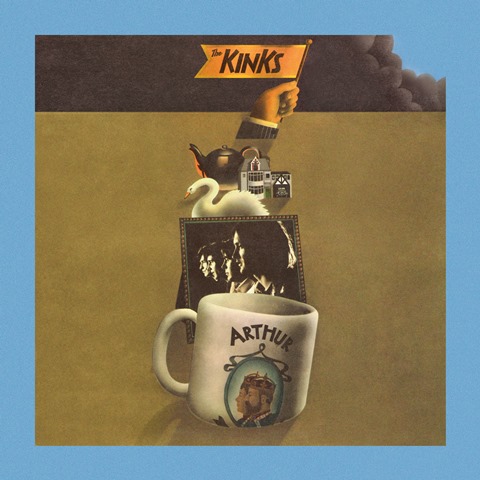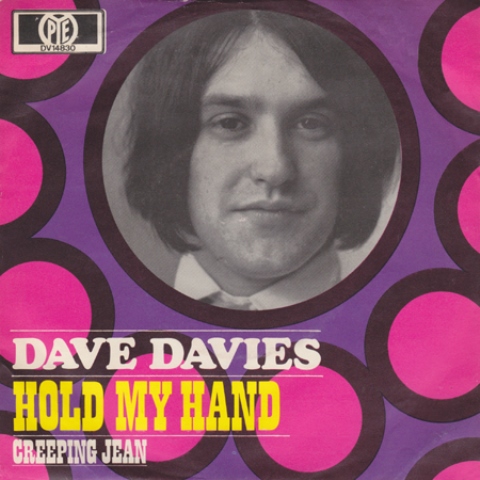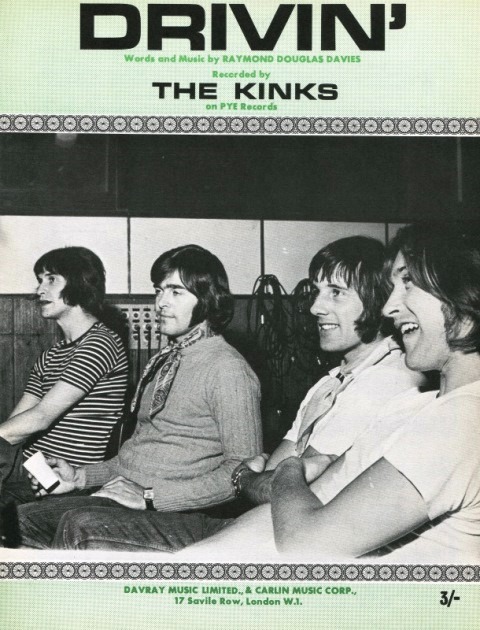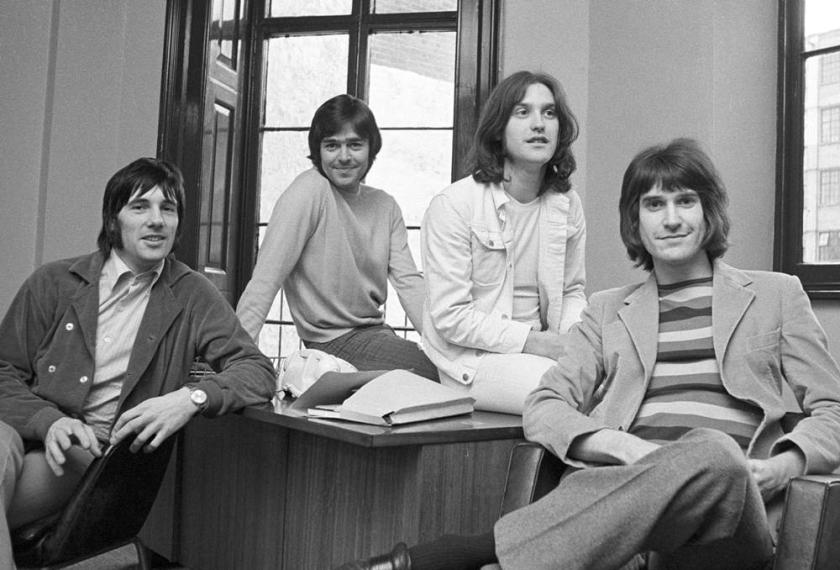Arthur or the Decline and Fall of the British Empire hasn’t had the stratospheric levels of praise as the preceding Kinks album, 1968’s The Kinks Are the Village Green Preservation Society. Yet in the band’s narrative, it’s probably more important as it went hand-in-hand with their return to America after an enforced absence and became integral to their subsequent achievements there. Furthermore, as its title attests, Arthur also had wider themes than Village Green: it was avowedly ambitious.
In his November 1969 Rolling Stone review, Greil Marcus brought contemporary context. “Less ambitious than Tommy, and far more musical – no fillers, no waste tracks, not a matter of ideas but of perceptions worked out by bass, drums, voices, horns and guitars – Arthur is by all odds the best British album of 1969. It shows that Pete Townshend still has worlds to conquer, and that the Beatles have a lot of catching up to do.”
 A fresh chance to catch up with Arthur arrives with a 50th anniversary edition, marking its original UK release on 10 October 1969. In common with the all the Kinks material from their period with Pye Records, the album has been reissued before on multiple occasions and last hit the shops in 2014 as a double-CD teaming the mono and stereo album with single versions, alternates, BBC recordings and the odd backing track.
A fresh chance to catch up with Arthur arrives with a 50th anniversary edition, marking its original UK release on 10 October 1969. In common with the all the Kinks material from their period with Pye Records, the album has been reissued before on multiple occasions and last hit the shops in 2014 as a double-CD teaming the mono and stereo album with single versions, alternates, BBC recordings and the odd backing track.
The freshly remastered Arthur is issued as a double CD, a double LP and what’s promoted as a “Deluxe Box Set.” There’s also a digital-only version. The casebound double CD marries the stereo album to what was contemporaneously compiled as Dave Davies’s shelved solo album. Single versions in stereo and mono, and alternates bulk out the track listing. The box set is what matters though.
This bells-and-whistles package is a just-larger than seven-inch box set with a lift-off lid. Inside are four reproduction singles, a floppy cover book, prints of photos, repros of two US concert posters, a badge and four CDs (a separate booklet lists what’s on each). The singles are repros of the French “Drivin’”, “Victoria’s” Netherlands’ release, the UK “Shangri-La” and the German version of Dave Davies’s “Hold my Hand” (pictured below left). Each CD comes in a no-frills card sleeve. Of the 81 tracks on the CDs, five are previously unreleased and there are 28 previously unreleased versions.
 Amongst the most interesting tracks are those collected on Disc Four. Here, Ray Davies has written and recorded new material in keeping with the album which relates to a new radio play interpretation of the album to be broadcast by BBC Radio 4 on 2 November: squaring a circle, as Arthur was originally meant to be tied-in with a television play being written at the same time as the album was being composed and recorded. The television project never happened in 1969, so the radio play offers closure of a sort.
Amongst the most interesting tracks are those collected on Disc Four. Here, Ray Davies has written and recorded new material in keeping with the album which relates to a new radio play interpretation of the album to be broadcast by BBC Radio 4 on 2 November: squaring a circle, as Arthur was originally meant to be tied-in with a television play being written at the same time as the album was being composed and recorded. The television project never happened in 1969, so the radio play offers closure of a sort.
Of the new material “Space”, where Ray sings with Mary Stockley, is proof he remains totally in tune with what made the album tick. A more eccentric inclusion is a 2010 live version of “Victoria” recorded for Danish radio where a low-in-the-mix Ray Davies exhorts the audience to sing along. A new Ray remix of “Shangri-La” foregrounding the additional instrumentation isn’t too thrilling. Disc Four also features a medley of 1969 demos and rehearsals of the album’s tracks, none of which have been heard before. The ragged and energised run through of “Victoria” is great and it would have been nice to have heard it in full.
Also noteworthy is Disc Three, which is dedicated to the Dave Davies of the period. The first twelve tracks are a stereo version of what was compiled on master tape as his solo album. The tape box is illustrated in the book and appears to be from 1969, but no explicit link between the image and what’s heard is made in the text. Nonetheless – despite these versions of all 12 tracks having been randomly strewn across various previous releases – this appears to be the first time the Dave album has been heard as it was conceived in July 1969 and drawing from the original master, so as such is important. Bonus tracks on this indispensable disc include mono solo singles and stereo versions, some of which have not been heard before. Oddest is a mix of “Lincoln County” focusing on the acoustic guitar; not essential, but proof of uncertainty about how the solo Dave Davies should be presented to listeners.
 There was no such difficulty with the assured Arthur. The album interwove true-life aspects of the Davies family history with the spin-off realisation that Britain’s role in the world was diminishing and becoming ever-more inward looking. The Davies brother’s sister Rose and her husband Arthur has emigrated to Australia in 1964, a cleavage already examined in the song “Rosy Won't You Please Come Home”, on the 1966 Kinks album Face to Face. For Arthur, Ray boldly broadened and reframed the theme. The Disc One stereo remaster hits hardest as the album sounds more direct than ever. Unusually, opening out the sound has not removed any of the core punch and what’s heard remains authentically of its period.
There was no such difficulty with the assured Arthur. The album interwove true-life aspects of the Davies family history with the spin-off realisation that Britain’s role in the world was diminishing and becoming ever-more inward looking. The Davies brother’s sister Rose and her husband Arthur has emigrated to Australia in 1964, a cleavage already examined in the song “Rosy Won't You Please Come Home”, on the 1966 Kinks album Face to Face. For Arthur, Ray boldly broadened and reframed the theme. The Disc One stereo remaster hits hardest as the album sounds more direct than ever. Unusually, opening out the sound has not removed any of the core punch and what’s heard remains authentically of its period.
While this reissue is obviously about the Arthur album, it is about more. The pre-album single “Plastic Man” is included: their last release with original bassist Pete Quaife. As well as the Dave solo material, the tracks Ray wrote for the film The Virgin Soldiers appear. What’s here soundtracks The Kinks's 1969.
The year began with the raising of the television play idea and the related songwriting. Then “Plastic Man” came out, Quaife left and was replaced by John Dalton after which came a US tour and the initial sessions for Arthur. Then, Ray was back in the States producing The Turtles. He returned home, the album was completed, issued and another set of US dates were played. All the while, the television adaptation of Arthur was in the air. Individual essays on aspects of all these are included in the book, but a single overarching, unified text on The Kinks's year and Arthur, rather than this disjointed approach, would have given a more cohesive and coherent sense of the eventful period, the album’s circumstances and what it led to.
Considering the history of The Kinks back catalogue, it is unlikely any fan lacks a version of Arthur. And, equally, the box set’s selling price of around £75 ensures this is a fan-only release. Nonetheless, this deep-digging and diligent tribute to an ever-wonderful album is the last word on Arthur or the Decline and Fall of the British Empire. If there is the budget and if an entry point is needed, head here.
- Next week: 40th Anniversary reissue of the first Raincoats album
- Read more reissue reviews on theartsdesk
- Kieron Tyler’s website















Add comment